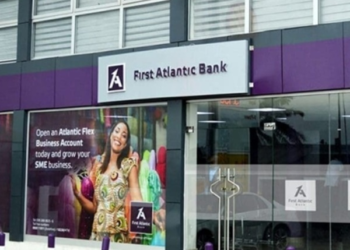The Bank of Ghana’s recent decision to ban 10 Money Transfer Organisations (MTOs) has ignited a heated debate over transparency and accountability in financial regulation.
While the central bank insists the bans were necessary to protect consumers and uphold the integrity of Ghana’s financial system, critics argue that the lack of detail surrounding the move undermines public trust and sets a worrying precedent.
The Institute of Economic and Research Policy (IERPP), a leading think tank, has been at the forefront of this critique, demanding that the BoG provide comprehensive explanations for the sweeping sanctions.
Meanwhile, in its public notice, the Bank of Ghana justified the bans by stating that the affected MTOs had committed “severe regulatory violations.” However, the statement stopped short of specifying whether these infractions involved licensing irregularities, failures in Anti-Money Laundering and Combating the Financing of Terrorism (AML/CTF) controls, or technological shortcomings.
This vagueness has drawn strong criticism from experts and industry observers. According to Prof. Isaac Boadi, Executive Director of IERPP and Dean of the Faculty of Accounting and Finance at the University of Professional Studies, Accra (UPSA), the opacity surrounding the enforcement measure threatens to erode confidence in the country’s financial governance.
“Banning violators is praiseworthy, but hiding details is opacity, not regulation. The public deserves the ‘why’, not just the ‘who’,” Prof. Boadi said in a strongly-worded statement.
Lack of Clarity on Due Process and Compliance Pathways
Beyond the failure to specify the nature of the violations, the BoG’s notice omitted any information about due process or remedial measures. Analysts note that there was no mention of whether the banned entities had been allowed to respond to the allegations before being blacklisted, nor any guidance on steps they could take to correct deficiencies and reapply for licensing.
Prof. Boadi underscored this omission, warning that regulation without avenues for rehabilitation risks alienating the very firms regulators are trying to discipline.
“Regulation without rehabilitation is exclusion, and exclusion breeds resistance—not reform,” he observed.
The IERPP has raised several critical questions: What categories of breaches were committed?; What criteria were applied to determine the severity of the sanctions?; Are there timelines for appeal or reinstatement?; What legal basis underpins the penalties?
Without answers to these questions, the institute argues, compliance efforts are likely to be weakened rather than strengthened.
Context: Rising AML Risks and Regulatory Crackdowns
The BoG’s enforcement action comes against a backdrop of growing concern over weak compliance in the financial sector. According to Ghana’s 2023 Financial Stability Report, there was a 15% increase in AML/CTF violations among fintech companies, raising fears about systemic vulnerabilities.
The stakes are significant. Ghana received approximately $4.6 billion in remittance inflows in 2023 alone, making MTOs a critical pillar of the economy. Meanwhile, the World Bank estimates that Ghana loses over $1.2 billion each year through illicit financial flows linked to poor AML enforcement.
Regulators in other sectors have been more transparent in their crackdowns. For example, the National Communications Authority (NCA) recently shut down several non-compliant media outlets, a move that—though controversial—was praised for its clear communication of offences and remediation options.
IERPP’s Recommendations for Transparent Regulation
In light of these developments, the IERPP has urged the Bank of Ghana to release a follow-up statement clarifying the sanctions and providing actionable guidance for the affected MTOs. Specifically, the institute recommends that the central bank disclose:
- The categories and details of the regulatory breaches.
- The specific sanctions imposed and the rationale behind them.
- Steps the companies can take to rectify their status.
- A timeline for appeals, compliance reviews, or reinstatement.
“Transparency builds trust in institutions. If we want to inspire confidence in Ghana’s financial ecosystem, we cannot regulate behind closed doors,” Prof. Boadi stressed.
Whether the BoG will heed the call and provide greater clarity remains to be seen, but the debate underscores a fundamental truth—effective regulation must inspire trust as much as it enforces compliance.
READ ALSO: Cedi Resurgence Sparks Parliamentary Call for Tighter Forex Monitoring























